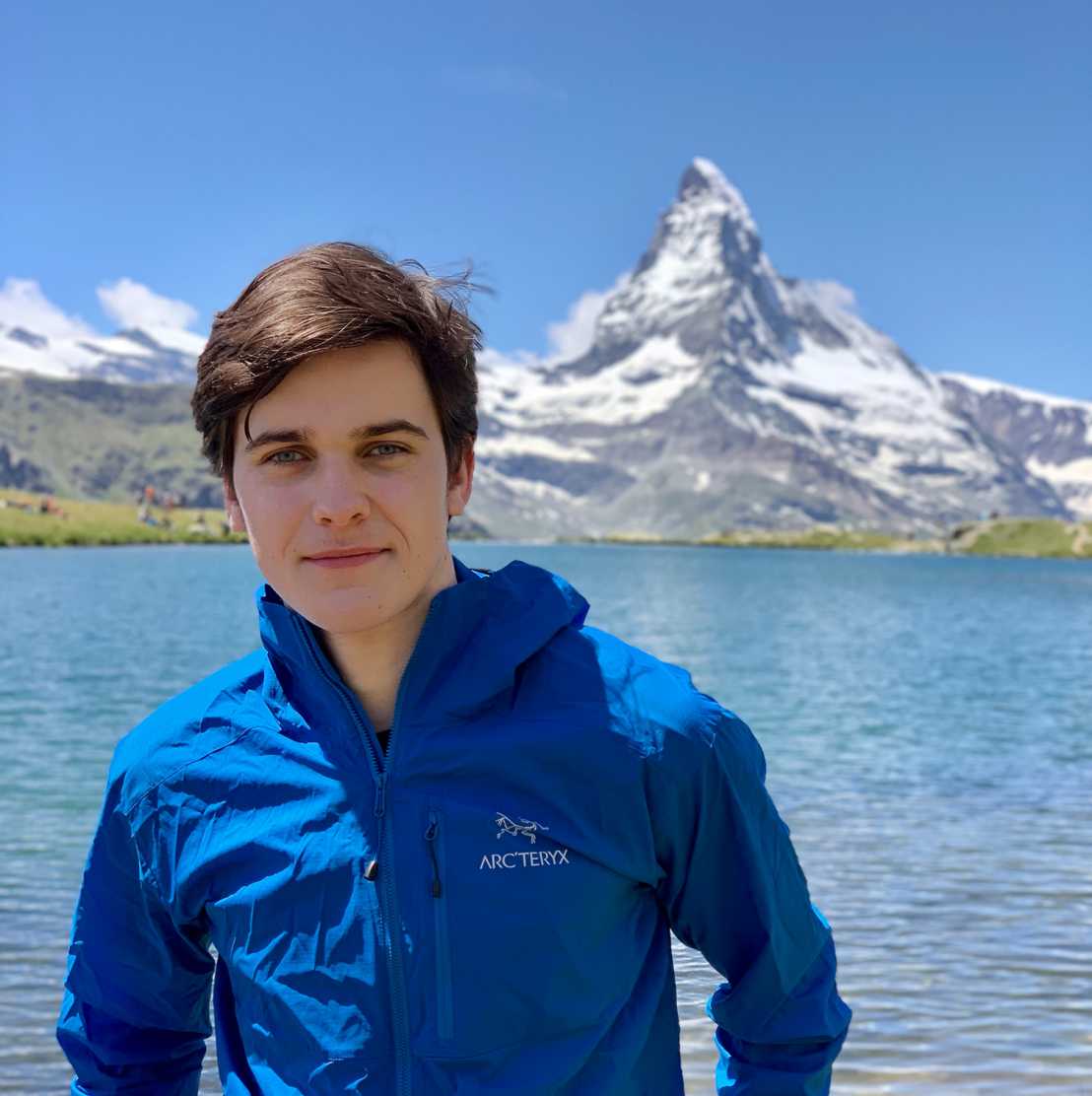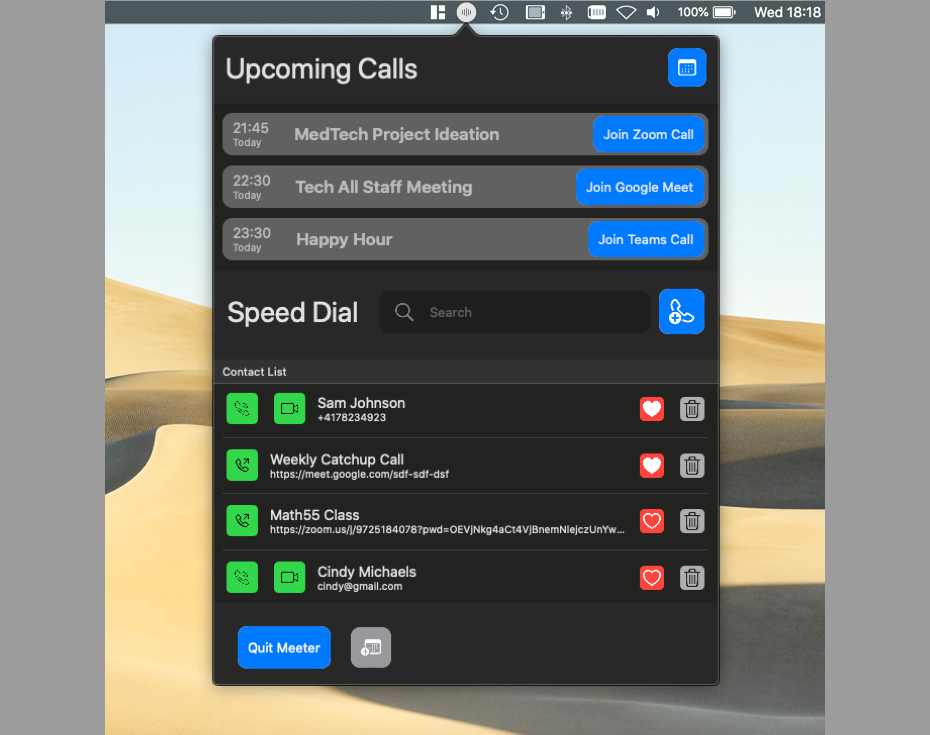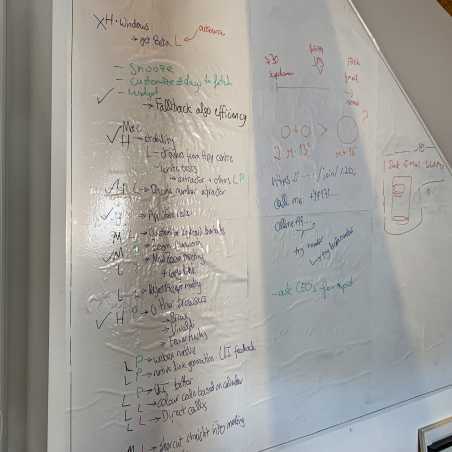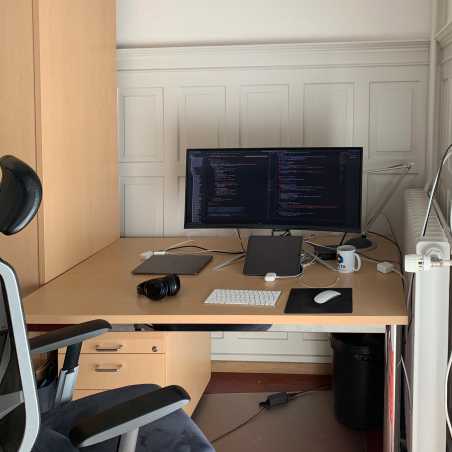“It’s almost like a drug”
From an early age, Patrice Becker had an interest in computer science. He was fascinated by the idea of being able to reach the whole world with just a laptop and some programming skills. Today, the computer science student successfully combines studies and entrepreneurship at ETH Zurich.

It’s not unusual for a computer science student to program an app. Less common is for that student to receive emails from investors in Silicon Valley and six-figure purchase offers. This is what happened to Patrice Becker, a sixth-semester Bachelor’s student, with his app Meeter.
Originally, Meeter was created for personal use. “When the lockdown started, we had a lot of online lectures and meetings on different platforms,” Becker recalls. Logging in was cumbersome: open the calendar, click on the event, find the link to the meeting in the notes. Working with a friend who studies computer science at the Imperial College in London, Becker built Meeter, an app that automatically filters meeting links from the user’s calendar and displays them in a handy overview.

Becker grew up in Frankfurt and showed an interest in computer science from an early age. His father, who himself works at IBM, initially wanted his son to pursue a creative career. “When my father told me not to do computer science, of course I wanted to do it even more,” Becker says with a smile. At school, he chose computer science as his major. The theory was interesting, but it was the practice that fascinated him most. Becker started taking part in hackathons when he was 13 years old. Most of his programming skills were self-taught. “If you’re working on a hackathon project and you’re not very good at programming, or you don’t know the particular programming language, you have to look things up as you go,” he says. “That meant I learned with every project.”
Becker still enjoys hackathons – just without the formal framework. “I regularly do ‘hackathons’ with Leonhard Soenke, with whom I programmed Meeter. We will work intensively on a project for a few days,” says Becker. “If you have a time limit, you are forced to focus on the essentials. We like that.”
Reaching people through computer science
Meeter was created in this kind of “hackathon”. Thinking that the app might also be useful for others during the lockdown, Becker published the link on Twitter and Reddit and went to sleep without a second thought. “The next morning, I had hundreds of notifications on my phone,” he recalls. “Within one day, the app was downloaded 20,000 times. We would have been happy to get a hundred downloads.” Since then, Meeter has been downloaded over 120,000 times.
The two students could not rest on their laurels yet – quite the contrary. “In the first week after Meeter went viral, I slept for maybe 20 hours,” says Becker. The app was still in an early stage of development, it was unstable on older devices, and was only marginally tested before release. “I learned a lot about software testing in the Rigorous Software Engineering course at ETH Zurich. But I didn’t think the testing was that important for the first versions of the app,” admits Becker. After the two students spent the first two weeks post release chasing bugs, they implemented a thorough testing process. Later, the small team enlisted help from Mohammed Khouni, who studies mechanical engineering at ETH Zurich.
“As a computer scientist, I can sit down anywhere with my laptop and create something that is immediately available all over the world and has hundreds of thousands of users. That’s awesome!”Patrice Becker
In order to reach as many people as possible, Becker, Khouni and Soenke made Meeter available for free. Only recently have they introduced a paid version. The fact that they did not earn anything did not dampen their motivation. “We received hundreds of emails from people who thanked us for the app, from Russia, from China, from Australia,” says Becker. “Giving people something they find useful is a great feeling – almost like a drug.” The opportunity of reaching a large number of people relatively easily is what he likes about computer science. “If I want to build a car, I need a factory, materials, workers, a lot of expertise and time,” he says. “In computer science, I can sit down anywhere with my laptop and create something that is immediately available all over the world and has hundreds of thousands of users. That’s awesome!”
Study-work balance
After graduating from high school, Becker looked for a suitable university place to give his passion for computer science a solid theoretical basis. “With its worldwide reputation, ETH Zurich was at the top of my list early on,” he says. He passed the strict entrance examination and moved to Switzerland. Except for a slight shock at the cost of living, he found it easy to settle in the neighbouring country. Today, Becker pays for his studies himself, with his own projects and a part-time job as a data scientist at the Canadian company Searidge Technologies, which specialises in the automation of air traffic control.


Despite his high workload, Becker has not experienced any problems managing his projects and his time. “Of course I work a lot, but I am able to balance my studies, my projects and my part-time job well,” he explains. During the examination period, for example, he focuses completely on his studies, but during the semester he will sometimes find time for a project. “My projects motivate me to study,” says Becker. “It’s much more interesting when I can directly apply what I’ve learned.” His main focus is on artificial intelligence and machine learning, although he doesn’t want to limit himself too much. “I like being able to choose what I work on at any moment,” he says.
Becker’s “portfolio” includes various apps and start-ups that reflect his penchant for variety. Before Meeter, he worked on another communication app and a payment app. While still at school, he co-founded a company that helps customers get refunds from airlines. Some projects are for profit; on others, he works pro bono, including a multi-year project that enables reliable neurological tests for dementia using a smartphone. Another volunteer project was the external page “Welcome to NRW” app, a tool that helps refugees find their way around the German state of North Rhine-Westphalia, which Becker developed during a hackathon while he was still at school. “I wanted to help and wondered how I could make the biggest impact,” he says. “I could have helped out at a refugee shelter, and I might have helped a dozen people. Or I could use my programming skills and help hundreds or even thousands. I was very pleased that the state took over our project and kept it alive.”
“My projects motivate me to study. It’s much more interesting when I can directly apply what I’ve learned.”Patrice Becker
The entrepreneurial student feels at home at ETH Zurich. “The only thing I would like is a slightly longer summer vacation,” he says. “Studying at ETH is very demanding, which I like. But you don’t have quite as much time to work on your own projects. Many big tech start-ups from the USA have been created during the semester breaks. This could be encouraged a bit more at ETH.”
The right idea
After the intensive work on Meeter, the next step for Becker is the equally demanding examination period. After that, he will only need a few more credits for his Bachelor’s degree. “I will most likely take both Bachelor’s and Master’s courses in the seventh semester,” he says. Although he works in the field of data science, he has decided to pursue his Master’s degree in computer science with a major in machine intelligence. ”That way I’m more flexible in my choice of subjects than with the Data Science Master’s,” he explains. “I’d also like to take subjects that are relevant for my app development projects and possibly for a future start-up.”
Becker’s goal after graduation is to have his own start-up company. But what about Meeter? “Meeter was designed as a small app,” he says. “We’ll develop it further and sell it. We’ll invest the money and knowledge we gain in a future project.” What that project might be, Becker doesn’t know yet. But he has never been short of ideas.